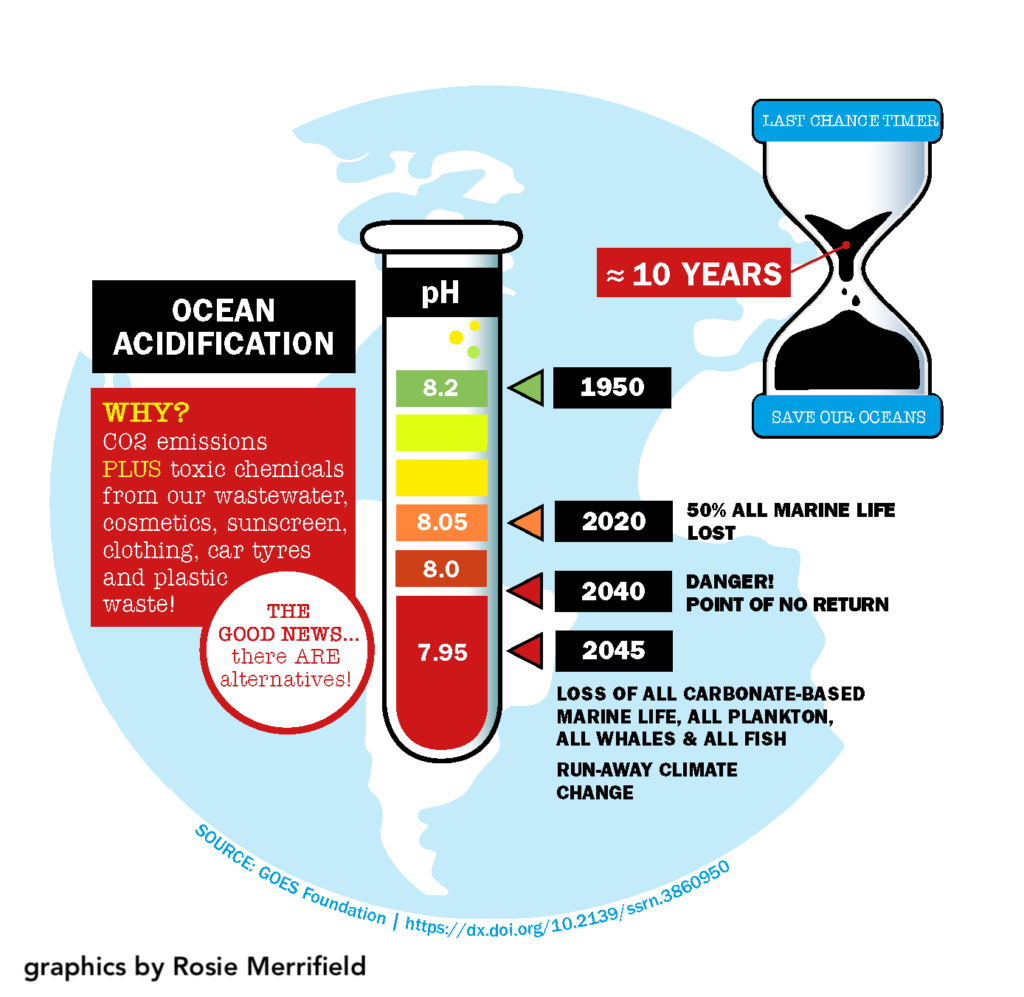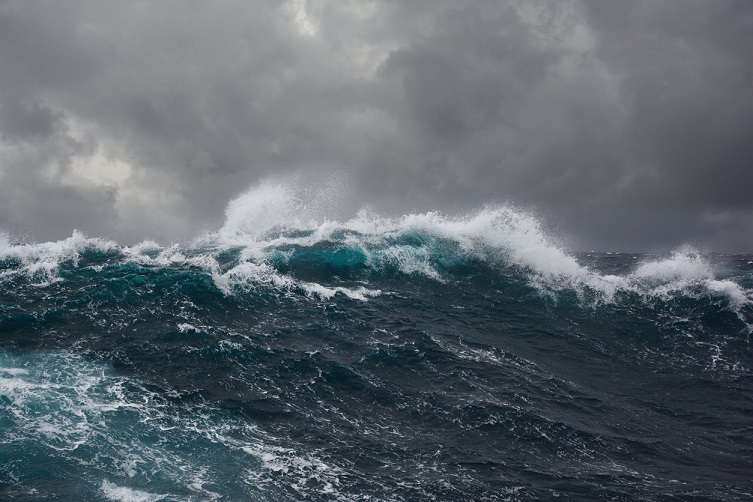I felt a lot of sympathy this week seeing younger generations, led by Greta Thunberg, who decried what they saw as a gross display of elitist posturing and grandstanding by global leaders ostensibly attempting to ‘solve’ the climate crisis at COP26.
I was there earlier this week, rubbing shoulders with the world’s elite as they fail to develop a meaningful way forward to protect future generations, but I have a different bone of contention that no one, not even the climate activists, seem to see.
Carbon neutrality by 2050 is a false prophet. Our climate activists are right to focus on CO2, but they need to look both ways, see both sides of the carbon equation – what goes in isn’t being taken out.
Instead of just looking up at our warming atmosphere, we should be looking down into our acidifying oceans.


The dominant narrative has been of the dangers of a warming planet. These dangers are real, and we must reduce our reliance on fossil fuels.
But this is not our most pressing problem. To explain why, I must introduce you to a number you will unfortunately be hearing a lot in the coming years: pH 7.95.

Like everything else on earth, our oceans are all about balance. They must remain above a certain pH level (remember those chemistry lessons from school) before crucial parts start to break down.
Excess levels of CO2 are not only warming the planet, but are also dissolving into the oceans, forming more and more carbonic acid. Combine this with the waste that we continue to dump into our seas and our oceans are rapidly becoming more acidic.
Why does this matter?
Phytoplankton. These tiny plants are the true ‘lungs’ of our planet. They absorb more CO2 than all the world’s forests combined. They are also at the base of the marine food chain.
If our oceans dip below pH 7.95, millions of these organisms will die, potentially wiping out half the ocean food chain, setting off an irreversible chain of events . Coral reefs will disappear. Seals, whales, birds and fish will die, no longer able to eat the food they relied on. Life as we know it would be over, and it is likely that most humans would be wiped out.
We are talking about the possibility of a sixth planetary extinction. And now for the really bad news. Without radical action in the next decade, we will pass pH 7.95 in about 25 years. Not 250. not 2500. 25 years.
This is not an emergency on the horizon, this is an emergency that is happening right here and right now.
My mission at COP was to sound the alarm on ocean acidification. As usual with these kinds of conferences, there was a lot of talking but very little accompanying action.
That’s fine with me, because like our young warriors gluing themselves to runways and airplanes, I am not putting my faith in COP for solutions. And fortunately, all hope is not lost. In fact, we are actually in the perfect position to save our planet.
The Global Oceanic Environmental Survey, or the GOES team, have decided that since global leaders don’t want to see the truth, we’ll drop it on their heads in the form of irrefutable scientific data. We have organized over 100 deep ocean-going yachts who are navigating over the world to take water samples that will shine a light on ocean acidification.
I will personally be sailing around the world with our crew, taking samples, in between speaking to politicians and corporate heads, and we won’t stop until humanity wakes up.
We are at the beginning of a very intense journey. Over the past year, scientists, CEOs, Ministers, people who we’ve been trying to reach for years, are suddenly banging down our doors, because they just realised– “The ocean is our biggest carbon sink. Why are they banging on our door now? Ocean acidification has been our focus for three decades and we know the innovations and solutions that will work.
What is our diagnosis? We can do this. Technological advancement combined with an unprecedented amount of political will can make the difference.
What is needed?
Slash carbon emissions not by 2050, but by 2030. Deliver a greening revolution in the petrochemical sector to transform the chemicals used every day in everything from plastics to agriculture, and textiles to personal care, and cleaning products that ultimately won’t destroy biodiversity in our rivers and oceans.
Global leaders must act to avoid pH7.95 like there is no tomorrow. If they don’t, there really will be no tomorrow.
Howard Dryden, PhD is Chief Executive Officer at the Global Oceanic Environmental Survey (GOES)

